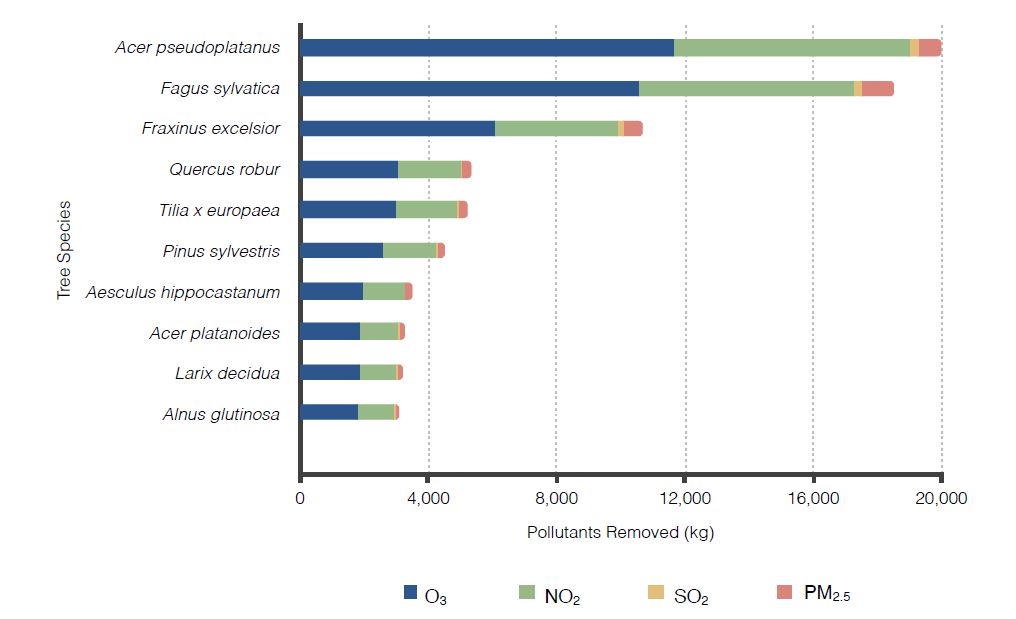Summary
In winter 2020 a partnership was established between Belfast City Council, Queen’s University Belfast, Treeconomics, and Forest Research, to value the benefits provided by Belfast’s trees using i-Tree Eco.
Belfast city region consists of urban and rural areas, and this project has assessed the benefits provided by trees in both of these areas. The ecosystem services that have been valued include carbon capture, air pollution removal, and avoided surface runoff.
The amenity value of the trees has been calculated using CAVAT (Capital Asset Valuation of Amenity Trees).
This work is part Belfast’s One Million Trees initiative and is funded by Belfast City Council.
Research Objectives
This project aimed to:
- Assess the structure and composition of Belfast city’s trees
- Calculate the amount and value of benefits provided by trees in Belfast
- Investigate the resilience and sustainability of Belfast’s urban forest
- Collect and analyse data that helps to inform Belfast’s tree strategy and the planting of one million trees by 2035
Findings and Recommendations
Findings
The urban forest of Belfast is a vital resource for the city. There are an estimated 808,000 trees in Belfast. The most abundant species is Fraxinus excelsior (ash).
These trees are estimated to remove over 210 tonnes of air pollution annually, with an estimated value of nearly £7.5 million per year.

Belfast’s trees reduce surface rainfall runoff by over 317,000 cubic metres per year, with an estimated value of £593,000 per year.
In total, the trees store around 319,000 tonnes of carbon, which is worth an estimated £290 million.
Selection of Recommendations
Equitable benefits
Consider the equity of how trees and the benefits they provide are distributed across the city. Increase planting, and therefore benefit provision, in areas that are lacking in canopy cover. Look to plant in areas with high deprivation and those which experience high air pollution, surface flooding, limited greenspace, or lack of shade.
Wide range of benefits
As well as planting trees for carbon storage and sequestration, consider the other benefits that trees provide, such as social and cultural values.
Structure
Large trees provide the most benefits. Retain large, mature trees wherever possible.
Downloads
Funding & Partners
- Belfast City Council
- Queen's University Belfast
- Treeconomics
- Forest Research

